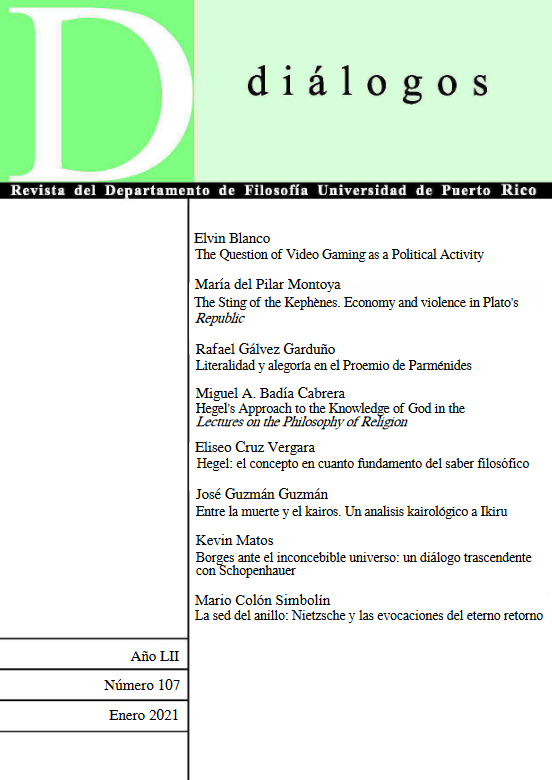Abstract
Video gaming is usually considered a leisure activity with no other purpose than that of the players‘ enjoyment. However, some game designers consider that video gaming can be a formative political activity that instigates players to transform their social circumstances. Game designers such as Molleindustria or Gonzalo Frasca consider that video games should contain critical messages to the socioeconomic circumstances that traverse players‘ ordinary lives. This critical content is supposed to promote players‘ political activism and transform them into social change agents; these kinds of games should be considered as "critical video games." On the other hand, gaming actions such as "sequence breaking," transgress the assumptions that game designers rule and direct the players‘ gaming experiences. Actions like these are what ludologist Espen Aarseth conceives as "transgressive play." These kinds of gaming actions can be regarded as political in the sense that they transgress a distributive order, which assumes that gamers are constrained by the will and expectations of designers.

This work is licensed under a Creative Commons Attribution-NonCommercial 4.0 International License.

